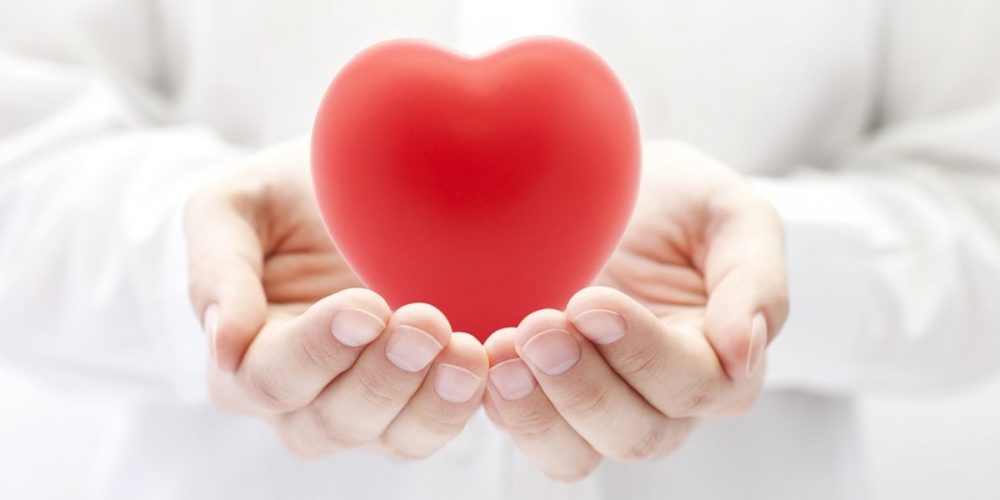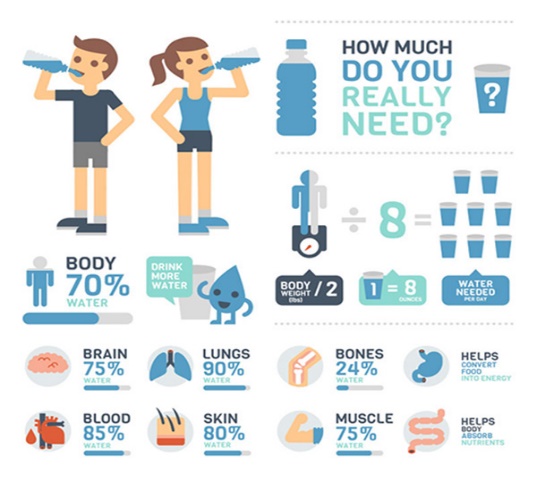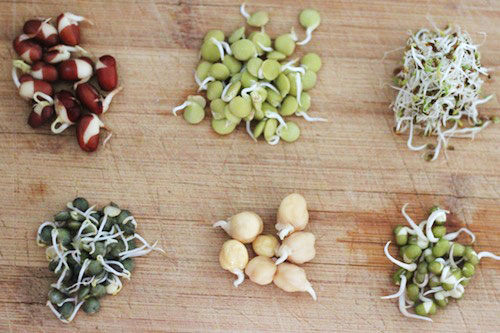By Sneh Jaisingh
We as a community, carry a lot of stress as a by-product of all the things we juggle in our lives. Career, education, social commitments, weather, traffic, deadlines, various other responsibilities, etc. That coupled with our lifestyle choices can play a significant role in increasing the risk of CVD. An article published in Stanford health says “People from South Asia—India, Pakistan, Bangladesh, Nepal, Bhutan, Maldives and Sri Lanka—have a four times greater risk of heart disease than the general population and have a much greater chance of having a heart attack before age 50.”

February is celebrate as national Heart Health awareness month. “Fat” had become synonym to “BAD” especially when it came to heart health. That is because for years we have heard that it causes heart attack, elevates cholesterol, weight gain, etc. Soon all the whole fat products were replaced by “healthier” options- low fat, skim milk, fat free, etc.
What was believed to be the right change, turned out to create more health concerns? It was probably because we also cut back on healthy or good fats along with the bad guys. Now research and science has shown that not all fats are created equal, while some fats are harmful to your waist and heart, there are certain fats that are infact completely opposite.
Fats
Fats are macronutrient and a major source of energy. All fats have similar chemical structure- a chain of carbon atom bonded to hydrogen atom. What makes one fat different from another is the length and shape of carbon chain. Seemingly slight difference in the structure translate into crucial difference in form and function.
Function of Fats
Fats, aids in absorption of essential vitamins (A, D, K and E) and minerals. Vitamin A is essential for good vision, vitamin D for bone health, K for blood clotting, and E for limiting the formation of harmful free radicals. One wonders what good it would do to fortify skim milk with vitamin D when there is no fat to absorb it.

Fats are also essential for forming steroid hormones, growth development and cell function. Our brain and cell membranes contains large amount of essential fats. Fats are essential for maintaining healthy skin and other tissues.
Heart Friendly Fats
While we have established that consuming diet rich in fat is essential, that doesn’t mean that any kind of fat would have the same benefits. The type of fat one consumes, matters.
There are 2 specific types of fat that are beneficial for our heart health:
Omega-3 Fats
Omega 3 is considered as essential for our body as our body cannot produce it on its own. Therefore we must rely on external sources. Its anti-inflammatory nature makes its one of the top choices when it comes to heart health. These help lower bad LDL cholesterol, raise good HDL cholesterol, helps improve triglyceride levels.
There are 2 sources of Omega-3’s:
Fish: Fish provides omega 3’s in the form of EPA (eicosapentaenoic acid) and DHA (docosahexaenoic acid) they are the preferred type. E.g. – salmon, sardine, anchovies, trout, tuna, etc.
Plant: Plants provide ALA (Alpha-linolenic acid). ALA is partially converted to DHA and EPA and hence many health care providers recommend to take fish or fish oil supplements.
E.g. – canola oil (cold pressed, non-gmo), flaxseed oil, walnuts, chia seeds, dark green veggies.
How much omega’s do you need? – You need atleast 0.5g of EPA or DHA per day and 1 g of ALA.
Easy ways to ensure you are getting your omega 3 naturally:
- Eat fish x2/wk
- Use organic cold-pressed non gmo canola oil in your cooking
- Eat handful of walnuts daily (1/4 cup give you 2500mgs)
- Use walnut oil for your salad dressing. (1 tablespoon=2400mg)
- Add chia seeds daily (1 tablespoon =2500mg)
- Sprinkle ground flaxseed in your curries, smoothies, and yogurt, add it to your roti dough. (1 tablespoon =2.2g of ALA)
- 1 tablespoon of hemp seeds = 1000mg
- Anchovies 1 can = 950mg
- Cod liver oil 1tablespoon=2600mg
- Mackerel 1 cup cooked=7000mg
- Salmon 3oz=1700mg
Monounsaturated fats also called MUFA’s
Research has shown that MUFAs reduce risk of heart disease by lowering LDL and improving HDL cholesterol.
Best source of MUFA’s are- olives and olive oil, canola oil (organic, cold –pressed non GMO), peanut oil, safflower and sesame oil, most nuts like-cashews, almonds, pecans, pistachio, peanuts, avocado, etc.
Easy ways to ensure you are getting your MUFA’s
- Eat handful of nuts daily 2oz to be specific
- Use Extra virgin olive oil for your salad dressings
- Add some olives in your salad, wraps, etc.
- Add avocados into your diet
- Use peanut butter over your toast or in your smoothies
Not so health fat
Trans fat the ugliest of all should be avoid as much as possible. They are a by-product of a process called hydrogenation. Shown to raise LDL and lower HDL cholesterol. According to the American Heart Association, Trans fats increase your risk of developing heart disease and stroke, and are associated with a higher risk of type 2 diabetes. Avoid food and packaged products that contain “partially-hydrogenated” oils.
Sneh’s favorites
I have created a list of some of my favorites that are not only delicious to consume but are packed with rich nutrients that will help lower bad cholesterol, boost immune system and increase satiety. As always moderation is the key!
- Avocado – This monounsaturated source of fat is one of the healthies fruit, rich in nutrients, fiber and proteins. It is a good source of anti-oxidant lutein that protects your vision. You can consume as is or add it to an entrée or use the oil for cooking. Its high smoking points makes it a great oil of choice for grilling and frying.
- Coconut oil – This delicious nutty flavored oil is a medium chain fatty acid. It’s easy to digest and great for your GUT. It improves brain and memory function and is a great source of energy.
- Ghee– Grass-fed organic ghee (not Dalda or Vanaspati) Ghee, especially, is rich in fat soluble vitamins like A, D, E and K2. Butyric acid found in ghee aids in digestion.
- Olives and Extra Virgin Olive oil – This delicate antioxidant rich monounsaturated is great for heart health. It is not recommended to cook with this oil due to low smoking temps. It is perfect for salad dressings and sautéing. It is anti-inflammatory in nature which is a boost when it comes to chronic health diseases related to inflammation.
- Nuts and oilseeds– These power house snacks are packed with essential nutrients. They are rich in omega 3s, especially walnuts, almonds, flax and chia seeds. They are also called brain food and come very handy for that quick snack or addition as a superfood in your meal. I love sipping chia water (1tsp chia soaked in water), if you haven’t tried it yet, do so!
- Raw dairy – Unlike the popular belief, RAW organic whole milk/dairy (saturated fat) coming from grass-fed cows that is not pasteurized or homogenized keeps all the nutrients intact along with the enzymes that milk contains naturally. It is loaded with some good nutrients and when consumed in moderation can be good for your health.
- Eggs– free range, organic eggs when consumed as a whole is packed with nutrients and are a good source of complete amino acids. These are economical and a great way to start your day or eat them as a snack.
- Salmon – Fish like salmon, sardines, trout, and mackerel are full of omega 3 fatty acid and know to boost heart health.
- Ground Flaxseeds –One of the easiest way to add in some omega 3’s especially for vegetarians. They are rich in both soluble and insoluble fiber which means it will keep you full for longer and also reduce cholesterol and promote heart health.
- Dark chocolate– there is nothing dark about the Dark chocolate (70% and above). There is a reason why its called a superfoods. It is high in fat (saturated fat) but rich in nutrients like vitamin A, B, E and calcium, iron, potassium, magnesium and antioxidants flavanols, helps improved heart health. It is also a great source of fiber, yes you read it right.
Don’t forget to gift a dark chocolate to your loved one this Valentines’
Along with incorporating these good fats into your diet, making some lifestyle changes will go a long way.
- Adding more fruits and veggies in your diet.
- Eating a variety of fiber rich whole grains and beans in your diet.
- Reducing processed meats and processed food into your diet.
- Limiting salt intake.
- Avoid drinking your calories in the form of sugary drinks.
- Reduce caffeine intake 1-2 cups/day.
- Limit added sugar and opt for natural forms of sugar instead.
- Avoid fat-free, low-fat, sugar free products and eat real wholesome food
- If you drink alcohol, drink in moderation.
- Exercise regularly be it 15 mins/day. Walk 10 mins post dinner.
- Make meditation part of your daily routine.
(Sneh Jaisingh, MS, CNC, INHC is an inspiring educator, innovator and practitioner in the field of integrative and holistic nutrition. With nearly 20 years of clinical experience, she has been an advocate for science-based mind and body wellness at conferences, seminars, workshops and through her writing. Sneh sees her clients online via skype or facetime or out of her office in Westborough, MA.)
Contact Sneh: www.snehjaisingh.com ; Email –nutriage@gmail.com
Facebook- www.facebook.com/nutriage














